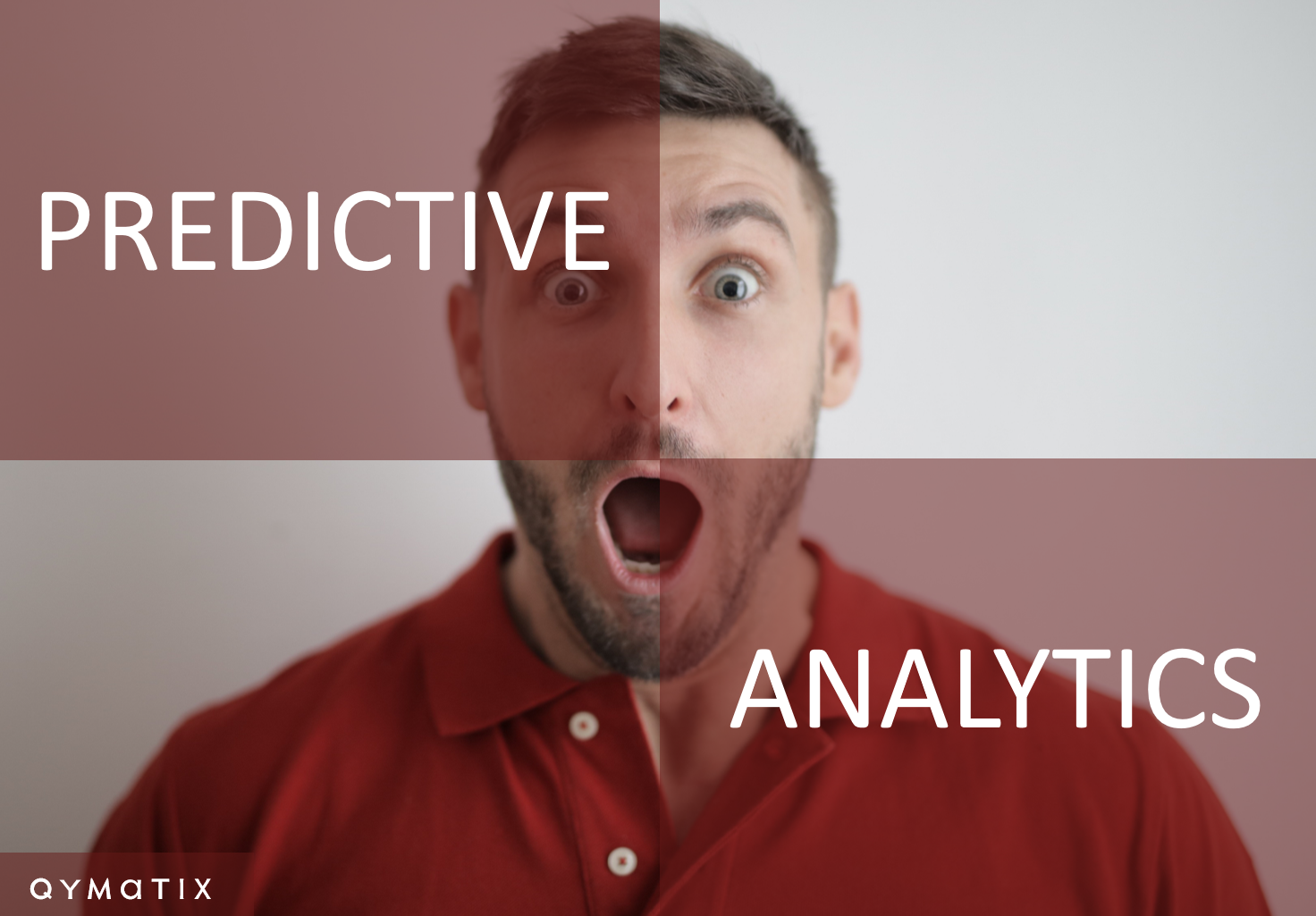Artificial Intelligence in Sales: B2B Algorithmic Management
Modern data-driven management in B2B sales is where Big Data meets Artificial Intelligence. Using AI for sales efficiency.
Although algorithmic management boasts a fancy, new name, managing a workforce using data is not necessarily a new postulate. Just remember that “The Principles of Scientific Management” were published by Frederick Taylor in 1911 and soon became a culprit of the data-driven management.
Algorithmic management is Taylorism in times of big data and artificial intelligence. It uses machine learning to manage and control workforces. Millions of people employ algorithmic management when ordering food, buying online or taking a cab. Millions of workers respond to algorithms. For some, the future of management, for others a depressing picture.
Read more
Qymatix awarded as a winner of the competition "100 places for industry 4.0 in Baden-Württemberg"
Karlsruhe, 03.08.2020. By video message, State Secretary Katrin Schütz awarded the winners of the „100 Orte für Industrie 4.0 in Baden-Württemberg“.
We are proud that Qymatix Solutions GmbH has been distinguished as one of only 13 companies on the topic of artificial intelligence.
The "Alliance Industry 4.0 Baden-Württemberg" aimed to discover innovative business concepts with this competition. These innovative business concepts should be successfully implemented in an industrial environment. Critical aspects for the evaluation criteria of the expert-jury were the degree of innovation and the practical relevance for Industry 4.0.
Sales Management in times of Artificial Intelligence – Five tips to redefine B2B Sales
Artificial intelligence in sales: our top five tips!
Sales processes, salespeople and sales management should adapt to the brave new world of artificial intelligence. Artificial intelligence is taking over the administrative tasks that consume much of the managers’ time. It is doing it faster, better, and at a lower cost. It has pros and contras. AI will redefine management.
In B2B Sales, artificial intelligence (AI) refers to Enterprise Resource Planning (ERP) and Customer Relationships Management (CRM) systems equipped with machine learning and automatized data mining features.
B2B E-commerce Analytics: Why Predictive Analytics is now critical
Predictive Analytics in B2B e-commerce has become decisive.
The sale of products and services via B2B platforms is on the rise. However, precisely because of the intense competition for comparable offers there, companies should automatically analyze their customer data to enable a personalized customer experience and identify churn risks.
For private consumers, buying online is ubiquitous. The Business-to-Consumer (B2C) sector is dominated by e-commerce platforms such as
Predictive Analytics: Three incredible future examples you should know about
Three Possible future scenarios in unexpected application areas of Predictive Analytics.
Let's explain the function of Predictive Analytics (PA) in simple terms: A software uses algorithms to analyze existing data and calculate probabilities of future events.
Due to big data and advances in technology, predictive analytics is becoming increasingly accurate and can predict events with an astonishing hit rate.
Industrial distribution: Identify potential for cross-selling with predictive analytics
How wholesalers and distributors recognize cross-selling potentials with predictive analytics.
Many manufacturers now sell their products directly to end consumers via web marketplaces. Unfortunately, wholesale trade and industrial distribution are coming under increasing pressure as a result.
Calculating cross-selling potentials using modern data mining can be a suitable strategy for keeping pace with the competition.
A glance at the analyses of the Federal Statistical Office shows that almost 90 % of Germans make online purchases at least once a year.
What is the fuzz about Predictive Analytics? One example of B2B Sales will make you start today.
B2B sales went through several transformations in the past decade. Mobile is ubiquitous, CRM Systems are universal and “customer journey” achieved mainstream status. However, Predictive analytics is cutting a “before and after” in B2B sales.
The ability to make predictions radically changes sales in business-to-business (B2B). It brings enormous advantages to pricing, reduces churn and improves sales planning.
Read more
How can a classic salesforce get started with predictive analytics?
In the future, it will be all about reading customer data correctly and drawing the right conclusions for customer strategy. That means a paradigm shift for the classic, contract-trimmed salesforce.
Is the classic field salesforce as known to companies and customers - slowly but surely - dying out? The digital transformation, currently the most critical driver of change, suggests this, and it has significant implications for B2B business and for internal processes.
How to use Big Data to stop customer churn in B2B | Predicting Customer Churn
Sales leaders in business-to-business (B2B) organisations are under constant pressure to spot new business opportunities.
It is, however, a too often neglected fact, that some of their current customers will churn and recurring revenues will not return.
Besides attracting new customers, succesful B2B firms also direct their efforts into retaining existing ones.
Why KPI’s Are Important to Your Sales Growth
Business success is usually measured in Key Performance Indicators (KPI): quantifiable evidence used to determine how well the sales goals are being met or will be met in the future.
Selecting the right set of key performance indicators is critical to the success of any sales organisation, in particular, those organisations aiming at future sales growth.
However, two main risks arise in the assessment of how well a B2B sales team is performing. First, B2B sales organisations tend to risk overloading their teams with too many KPIs, dashboards, and non-actionable data. Measuring an excess of performance indicators reduces the impact of each KPI, leads to confusion and lack of focus.










